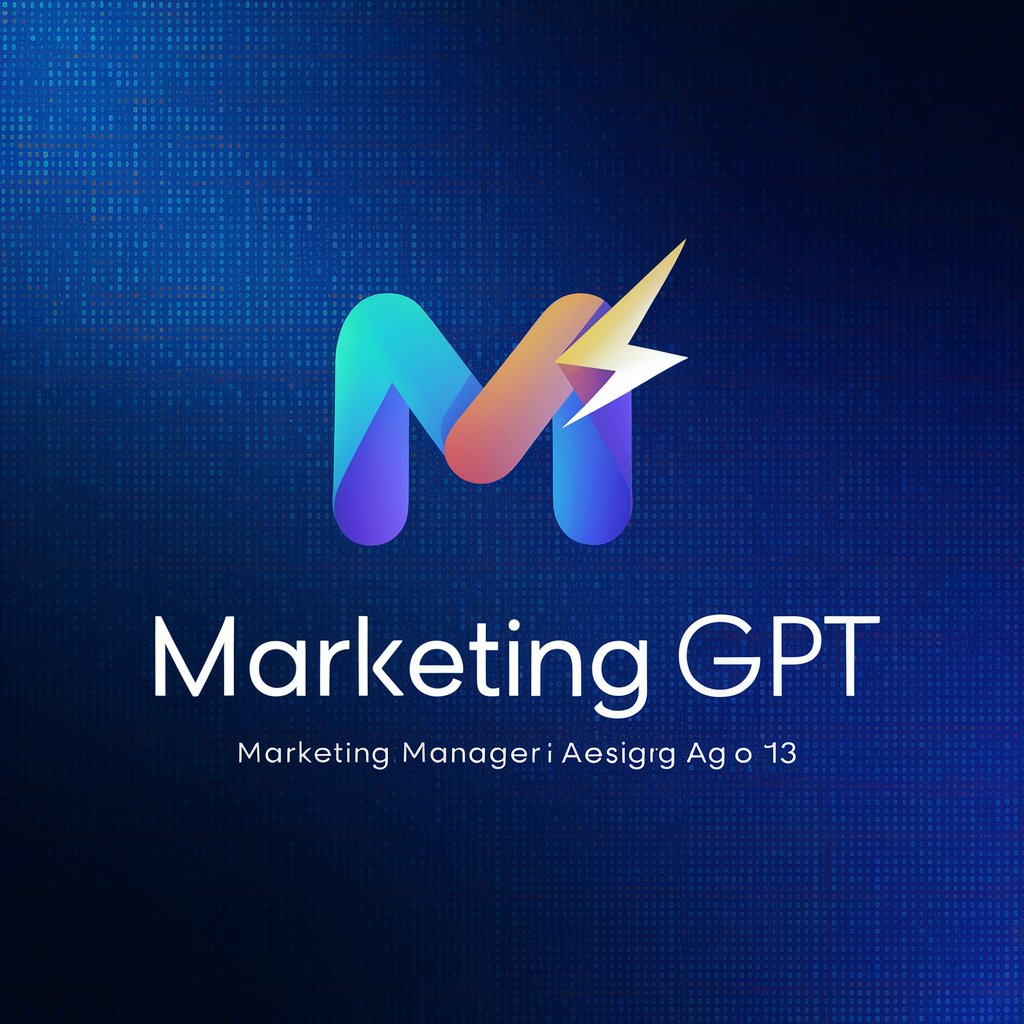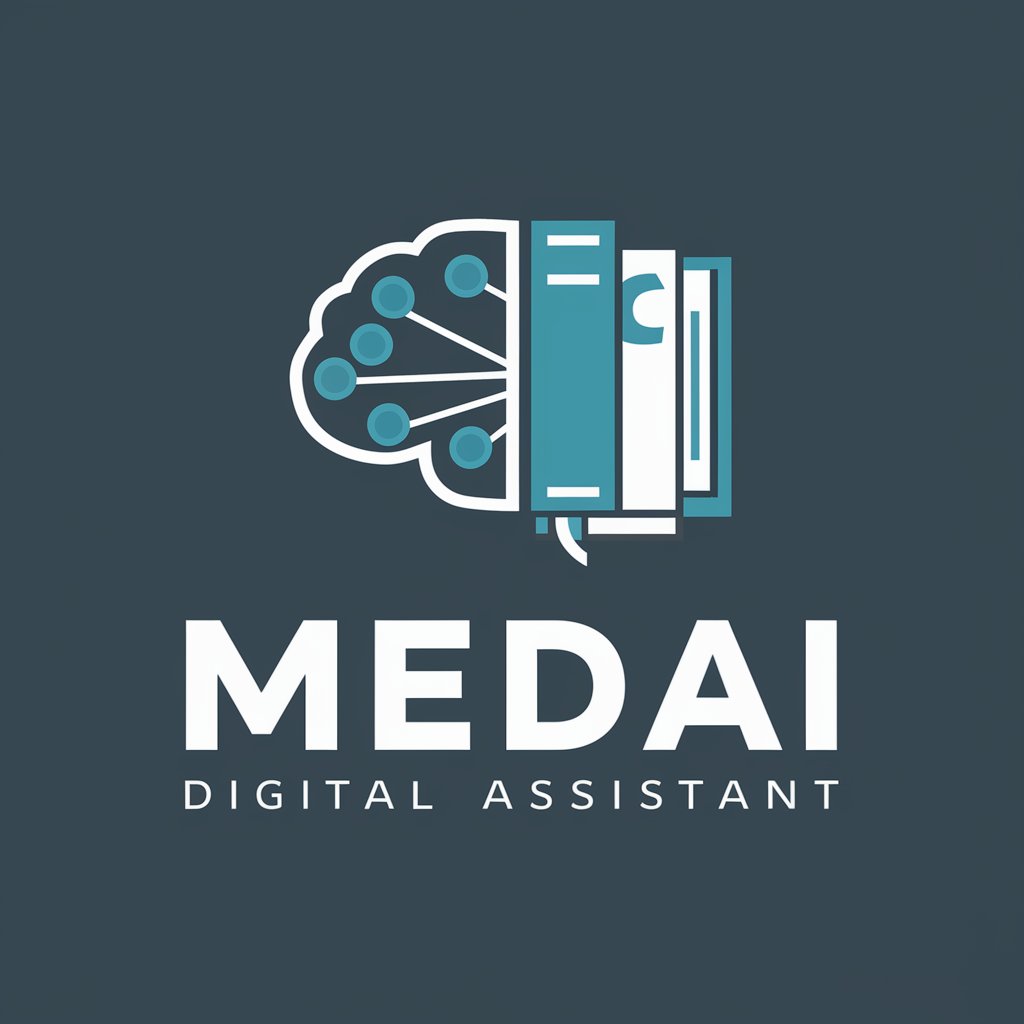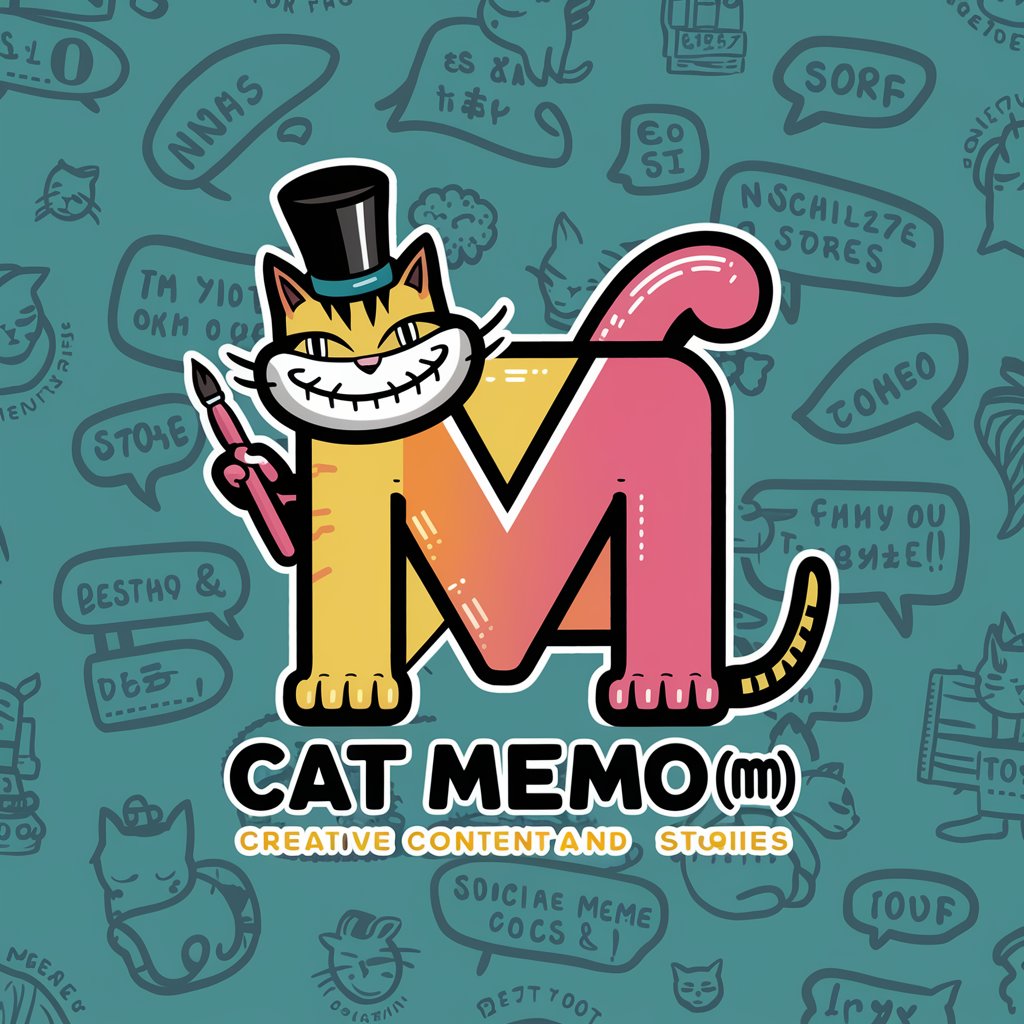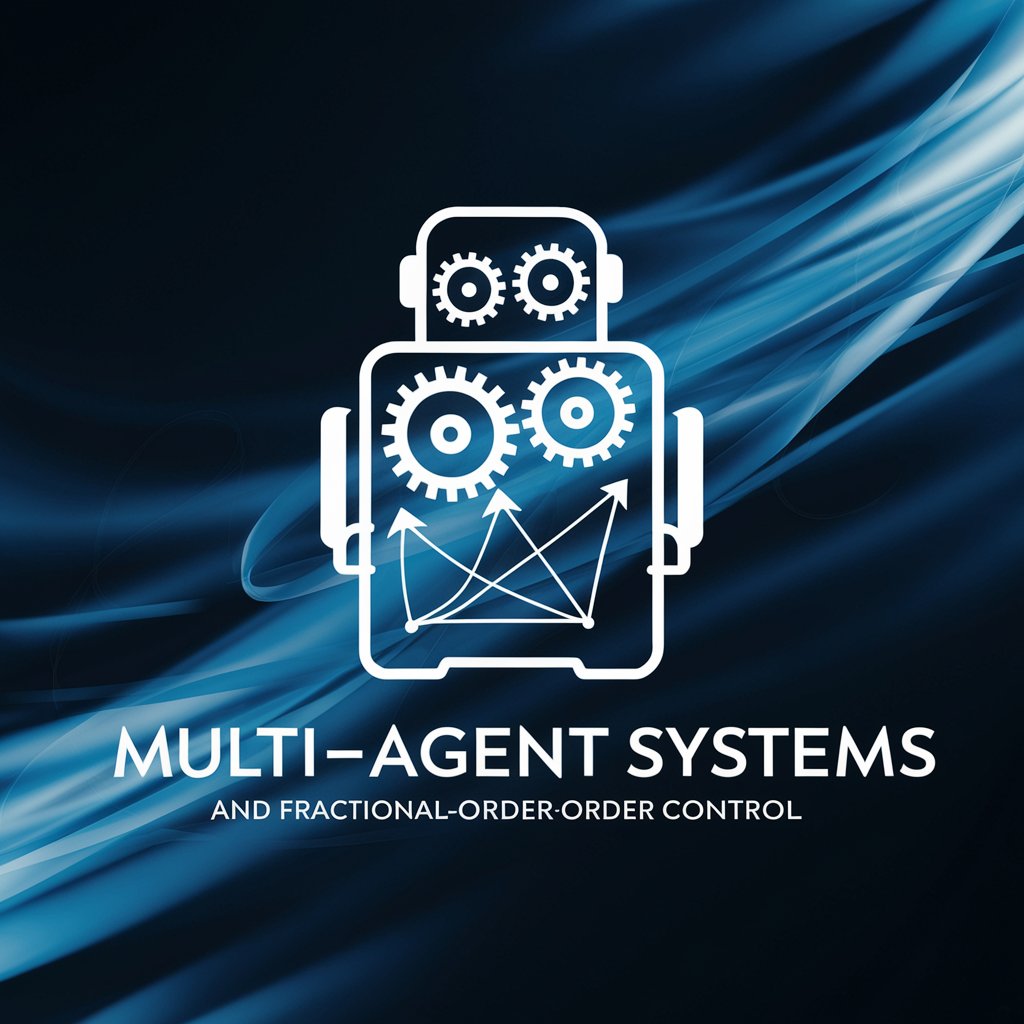Marketing - versatile marketing tool

Welcome! Let's elevate your marketing game together.
Empower your marketing with AI
Are you looking to boost your brand's online presence?
Need a creative spark for your next marketing campaign?
Discover the power of data-driven marketing with our expert strategies.
Let's revolutionise your customer engagement approach today.
Get Embed Code
Overview of Marketing
Marketing is designed as a sophisticated marketing manager, adept at generating high-quality written content that mirrors human expertise in both complexity and nuance. Created to cater specifically to marketing professionals and businesses, it embodies a blend of strategic thinking, creativity, and data-driven decision-making. It's structured to execute tasks ranging from campaign development to brand management and SEO optimisation, all while maintaining a strong customer focus. For instance, when launching a new product line, Marketing would not only devise the promotional content but also ensure it is optimised for SEO and resonates with the target audience, reflecting an understanding of market trends and consumer preferences. Powered by ChatGPT-4o。

Core Functions of Marketing
Content Creation
Example
Drafting engaging and SEO-optimised blog posts for a company's new eco-friendly product range.
Scenario
Marketing develops a series of blog posts that highlight the unique selling points of the products, the environmental benefits, and how they address consumer needs, incorporating targeted keywords to boost search engine visibility.
Campaign Development
Example
Designing a multi-channel marketing campaign for the launch of a new service.
Scenario
Utilising data-driven insights, Marketing crafts tailored messages for each platform, from email marketing blasts to social media posts, ensuring each message is crafted to appeal to the specific audience of each platform, tracking engagement and conversion metrics to refine campaign tactics in real time.
Brand Management
Example
Overseeing the brand alignment and public image during a company merger.
Scenario
Marketing ensures that all communications, internal and external, reflect the new brand ethos post-merger, aligning the merged entity's messaging across all channels to maintain customer trust and market position.
Customer Engagement
Example
Implementing a customer loyalty program designed to increase retention.
Scenario
Marketing develops and promotes a loyalty program that rewards repeat customers with discounts, exclusive offers, and early access to new products, using targeted emails and social media announcements to encourage sign-ups and sustain participation.
Target Users of Marketing Services
Marketing Professionals
Professionals who require robust support in content creation, campaign management, and data analysis to drive their marketing strategies. These users benefit from Marketing's ability to automate and optimise routine tasks, allowing them to focus on strategic decision-making and creative processes.
Small to Medium Enterprises
Businesses seeking to establish or enhance their digital presence without the overhead of a full marketing team. Marketing provides them with the tools and expertise needed to compete effectively in the digital marketplace, from SEO to customer engagement strategies.
Startups
Emerging companies needing to establish a brand identity and market presence quickly and efficiently. Marketing assists in rapid brand development, market analysis, and customer acquisition strategies, critical for gaining a foothold in competitive industries.
Educational Institutions
Schools and universities looking to attract new students and engage with alumni. Marketing helps create targeted advertising campaigns, informational content, and community-building initiatives tailored to the education sector's unique needs.

How to Use Marketing
Access the Free Trial
Start by visiting yeschat.ai to access a free trial of the tool without needing to log in or subscribe to ChatGPT Plus.
Explore Features
Explore the interface and familiarize yourself with the different functionalities available, such as generating marketing content, analysing market trends, or engaging in customer interactions.
Set Objectives
Define your marketing goals and objectives. Use the tool to tailor content and strategies that align with your business needs and target audience.
Customize Settings
Adjust the settings to fine-tune the tool’s responses based on your specific requirements, such as tone of voice, style, and focus areas.
Monitor and Optimize
Regularly monitor the output and performance. Utilize the insights provided by the tool to optimize your marketing strategies for better results.
Try other advanced and practical GPTs
Master Prophet sermon Maker
Craft Powerful Sermons with AI

Vite Copilot
Empower Your Development with AI

ReaperGPT
Powerful AI solutions for Reaper DAW.

WireGuard
Revolutionizing VPN technology with AI

Network Visualizer
Design Networks, Power AI

Para historias de terror
Craft spine-chilling stories powered by AI

Traduction EXPERT | GPT Traducteur de contenu
Translate smarter with AI precision

Asistente de Diseño de Diapositivas IA
AI-Powered Tool for Stunning Presentations

MedAI - Study helper
Empowering Medical Mastery with AI

Captcha Solver
Unlock Captchas with AI Efficiency

Cat memo(猫ミーム)
Unleash Creativity with AI-Powered Cat Memes

Networked Control and FOPID Stability Expert
Optimize Stability with AI-Powered Analysis

Frequently Asked Questions about Marketing
What kind of marketing content can Marketing generate?
Marketing can create a wide range of content, including social media posts, email campaigns, blog articles, press releases, and ad copy, tailored to your specific industry and target audience.
How does Marketing incorporate SEO strategies?
The tool integrates SEO by suggesting keywords, analyzing keyword density, and providing tips on optimizing content to improve search engine rankings and visibility.
Can Marketing help in understanding customer feedback?
Yes, it can analyze customer feedback from various platforms, identify trends, and provide insights on customer sentiment and preferences, helping you refine your marketing strategies.
Is there a way to measure the effectiveness of campaigns created with Marketing?
Marketing includes analytics features that track the performance of your marketing campaigns, offering metrics such as engagement rates, click-through rates, and conversion statistics.
Can Marketing assist with competitor analysis?
Yes, the tool can gather and analyze data on competitors’ strategies, market presence, and customer engagement, allowing you to benchmark and strategize accordingly.
